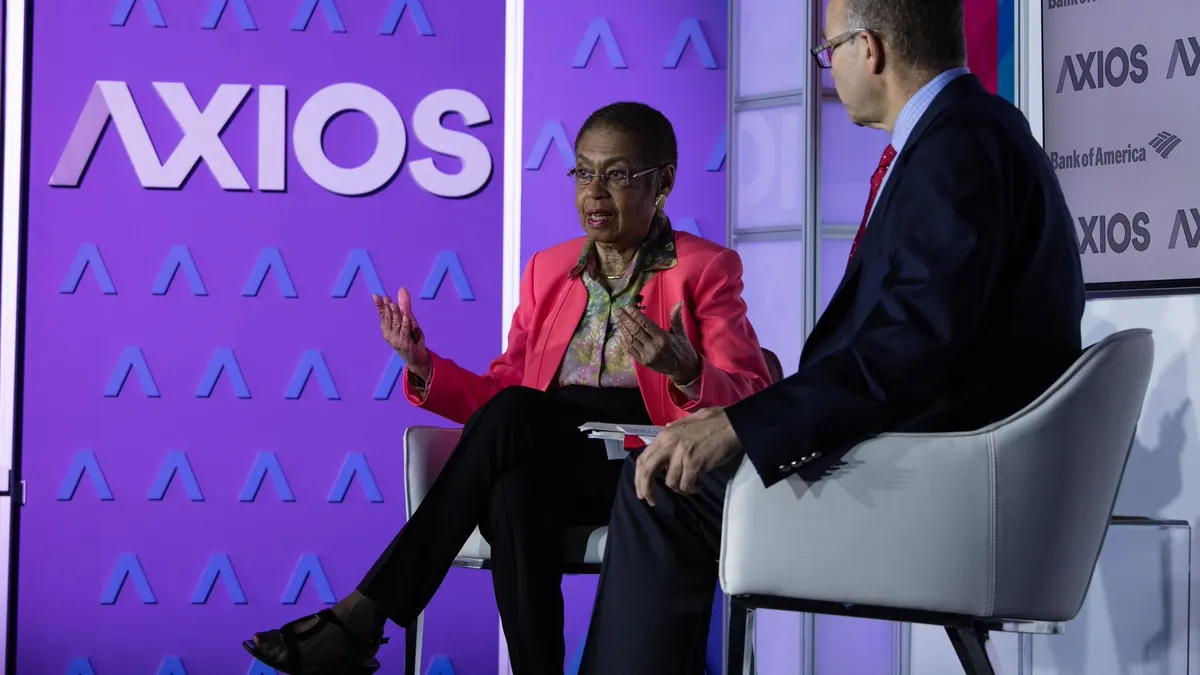Dive Brief:
- Austin Mayor Steve Adler, D, and Del. Eleanor Holmes Norton, D-DC, bemoaned the lack of progress on a new federal infrastructure plan, three months after President Trump first proposed it.
- At an event Tuesday morning in Washington hosted by media company Axios, Adler said Americans "shouldn't be surprised" at infrastructure being in a poor state as investments have not kept up with the rate of inflation.
- Holmes Norton said Congress should pay for new infrastructure by raising the federal gas tax, something that hasn't been done since 1993.
Dive Insight:
Trump’s infrastructure plan has been declared dead on arrival in Congress by some observers, but U.S. Sen. James Inhofe, R-OK, disputed that characterization of where the legislation is. Inhofe, who is a member of the Senate Committee on Commerce, Science and Transportation, said that committee is "very actively working on it right now," and that it could move forward soon. "I'm not real sure what to make of that,” Adler said in response, indicating his pessimism.
Holmes Norton said raising the gas tax through the Penny for Progress Act would be the best way to proceed. That bill, which has languished in the U.S. House of Representatives since introduction last year, could generate $500 million to fix roads, bridges and transit by everyone paying an extra penny at the pump for gas. "We're just stuck on what my Republican colleagues always get stuck on: you can't build roads without money," she said. Similar action also has support from the American Public Transportation Association, as well as the US Chamber of Commerce and AFL-CIO.
Both agreed that despite the apparent gridlock, improving the nation’s infrastructure has broad bipartisan support, but needs the political will from the federal government and then states and cities to make improvements a reality. "If we let our roads and highways further deteriorate, I'm not sure what's left of our country. It's what made our country great,” Holmes Norton, who serves on the House Committee on Transportation and Infrastructure, said.
But the lack of progress has left them frustrated. "I'm disappointed that it's taken this long for us to not have achieved what I thought we were going to achieve immediately with the new administration. But I would rather it happen tomorrow than not happen at all," Adler said. He said he will introduce a resolution at the U.S. Conference of Mayors meeting next week in Boston calling for more investment than the $200 billion over 10 years that has been proposed.












